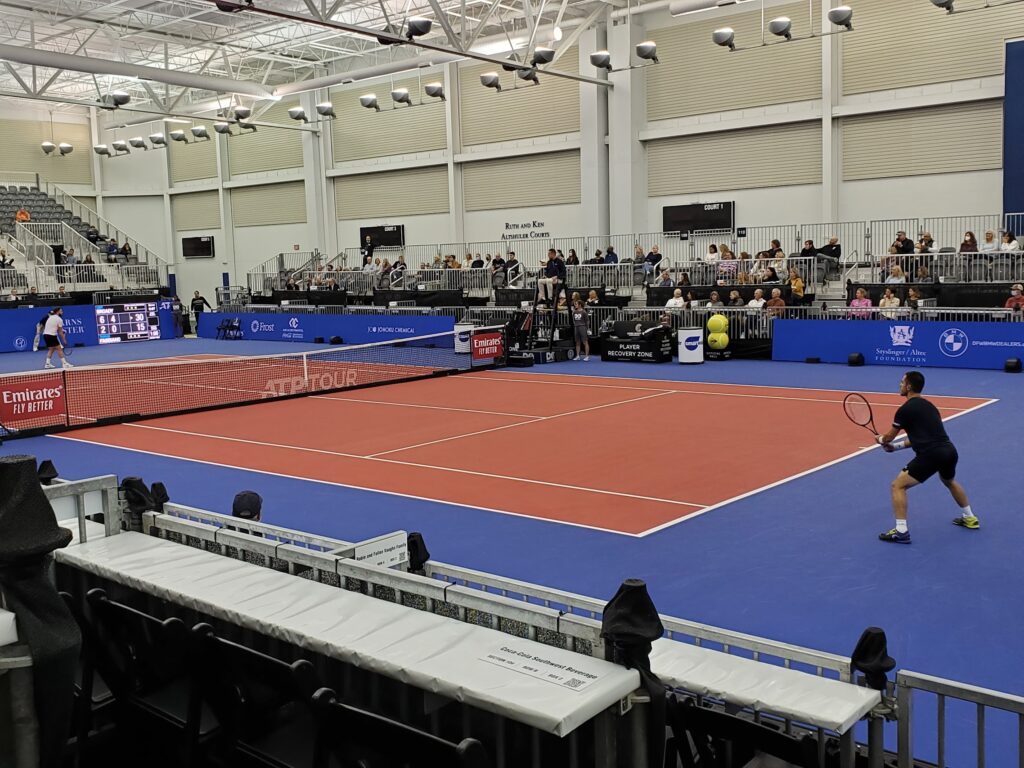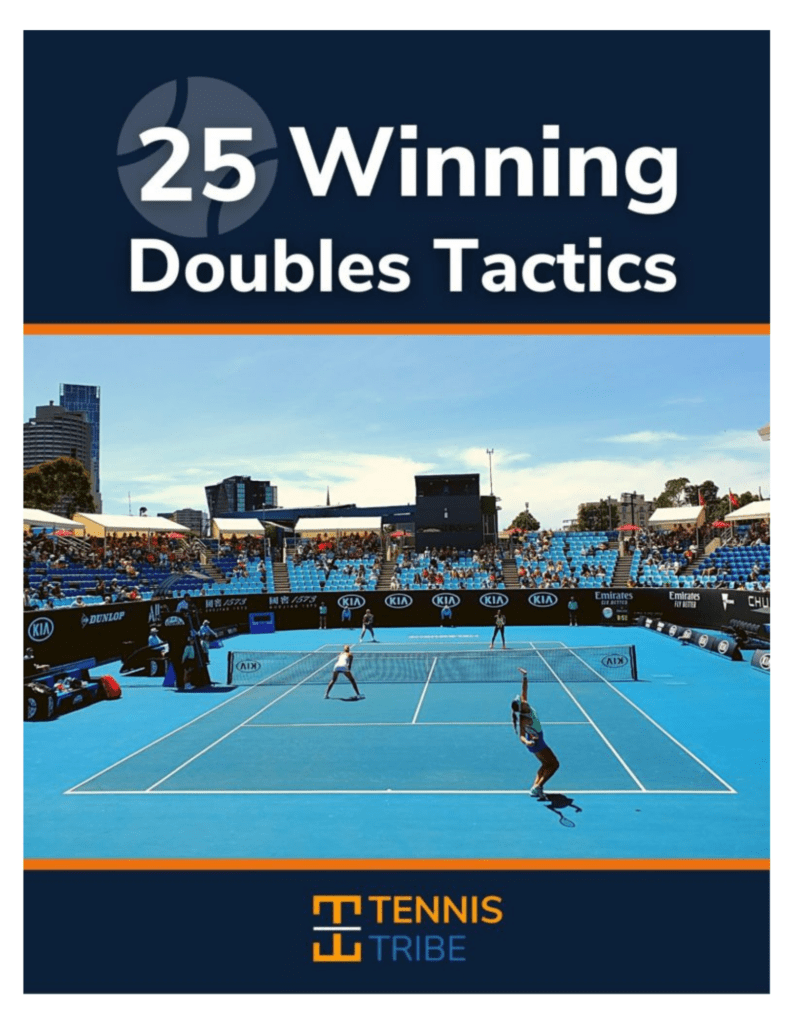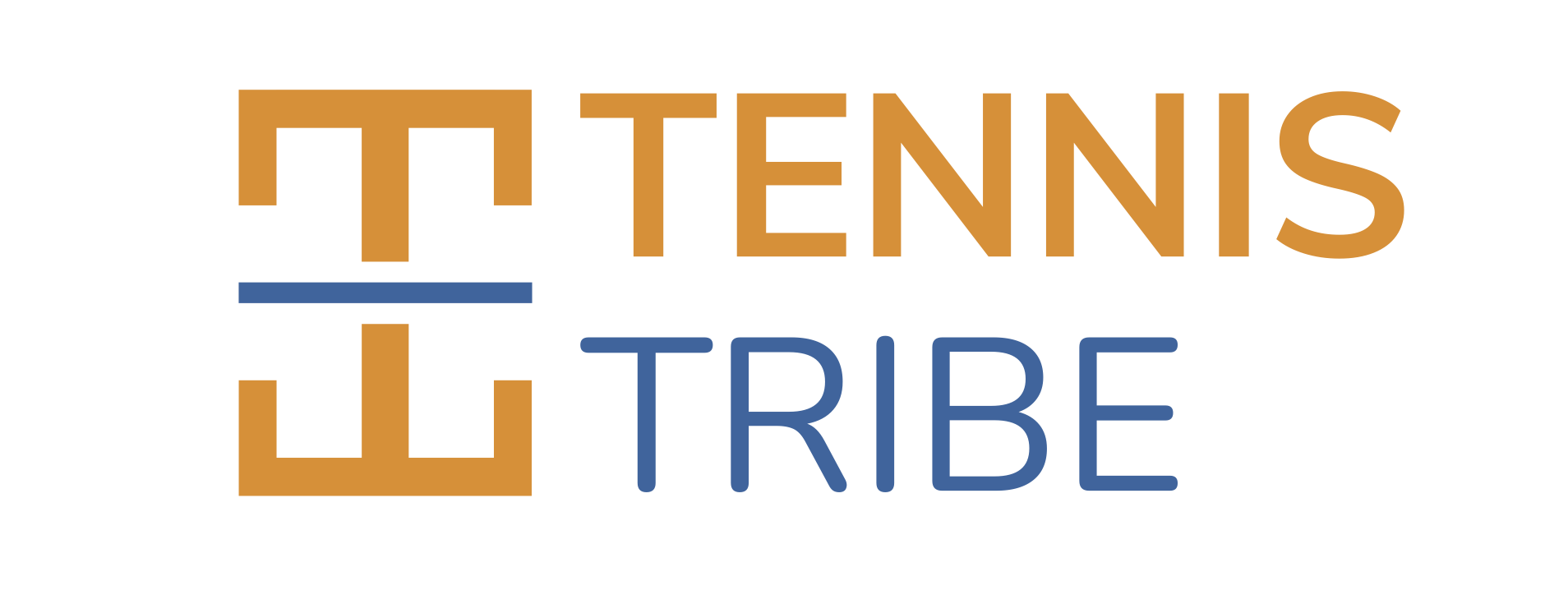In this episode, I discuss 10 things you can start doing on the court to maintain focus during your matches.
You’ll learn several methods to maintain focus and resources to expand your mental toughness on the tennis court.

A few of the questions answered include:
- What should I do before big points during the match?
- What should I be doing before serves and returns?
- How do communicate better with my partner?
- What should I be focusing on during points?
If you ever get nervous on the court or have trouble maintaining your focus during matches, this episode is for you. Maintaining focus is one of the key differentiators between lower and higher level players.
Learn the best advice I’ve learned on this topic from top pro players and coaches over the years.

25 Winning Doubles Tactics Guaranteed to Help You Play Smarter
Ebook with 25 expert serve (7), return (5), net-play (5), baseline (4), & approach (4) tactics you can use in your next doubles match.
Notes from this Podcast
*To help support The Tennis Tribe & provide more free content like this, we may earn a percentage of purchases through the links below. See our affiliate page for more info.
Here are some of the things I mention in this podcast episode:
- #1 – Focus on your opponent/strategy
- Spend more time studying your opponent’s tendencies and how you can expose them rather than your own weaknesses.
- #2 – Breathe
- Take a second to breathe between points, especially if you are nervous or frustrated.
- #3 – Focus on the seams
- Correction: Focusing on the seams of the ball was actually from the book, Inner Game of Tennis.
- In the episode I said it was from Getting Tight, an online course by Jeff Greenwald from Fearless Tennis and Craig O’Shannessy. Getting Tight is a great course for players who want to improve their game under pressure and play more freely.
- #4 – Footwork/positioning > hitting
- In my Mental Toughness Checklist, I discuss the importance of exaggerating your footwork, especially in pressure moments, to make sure your positioning is correct.
- #5 – Don’t be negative
- It’s okay to be frustrated for a second, but don’t let negativity consume you.
- In my How to Win More Tiebreakers podcast, I talk about how negativity narrows your focus on the wrong things.
- #6 – Communication
- Tell your partner exactly what you’re going to do on the next point to put the focus on strategy/execution rather than outcomes.
- #7 – Slow down
- During big moments, when you’re serving, frustrated, or between every point, just slow down and reset.
- #8 – Bounce before returns
- Bouncing for a little bit and encouraging yourself before returns helps you to engage mentally.
- #9 – Visualization
- Steve Nash, an all-time great basketball player, would close his eyes before free throws and visualize them going in. Before every serve, visualize where you want it to go.
- #10 – Gratitude
- Appreciate the moment, enjoy the opportunity, and be grateful that you can play the sport, compete, and have fun. Remember, you’re not getting paid, so just enjoy it.

Hey,Will.
Enjoyed the 10 things to improve your focus. As I was listening, I was looking for something that might relate to times when “the wheels fall off” of your game. I had a game like this recently – played really well in the first set, then somewhere in the second I could not hit the simplest shot. It was ugly – so ugly that my partner, who is a good friend, asked if I was tired. I’m nearly 73 and I routinely have a drop off in play to some degree in the second, and most definitely in a 3rd set, however, this was so extreme I was clueless as to what was happening. I considered what my partner said and concentrated on my footwork (#4). This usually helps when I’m tired, but not this time. The mis-hits, balls in the middle of the net, and other inexplicable errors just kept on a comin’. We lost that set 6-1. During the set break I embraced my fatigue and asked myself what else I could possibly do to minimize its effect on my game. Go back to basics, I thought – Move your feet; watch the ball, follow through to the target. I found that willing myself to follow through was the biggest help,. I was surprised to realize that, while I felt I was trying my hardest, I had almost completely stopped following through. We pulled out the win in a tiebreaker.
Now I know that, when I get tired, I stop following through. Before this, I think I was in denial about my fatigue, or just thought I could “power through.” I hope this adds to the discussion. It has been a big lesson for me to be willing to acknowledge and embrace fatigue in order to, then, find solutions on the court.
Hi Mason! Thanks for the contribution.
Self awareness is super important in tennis and it sounds like you learned something about yourself in that match. Knowing when you’re tired and what to do to mitigate that fatigue can help a lot.
When things go very wrong for me, I usually try to go to the net more often, and hit every ball crosscourt – play high percentage tennis. Then, once I’m feeling better, I can start to go for more.